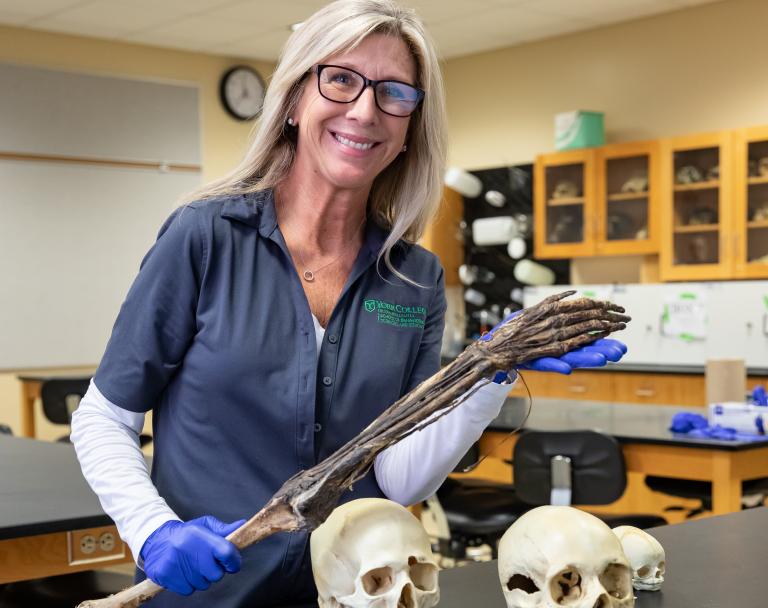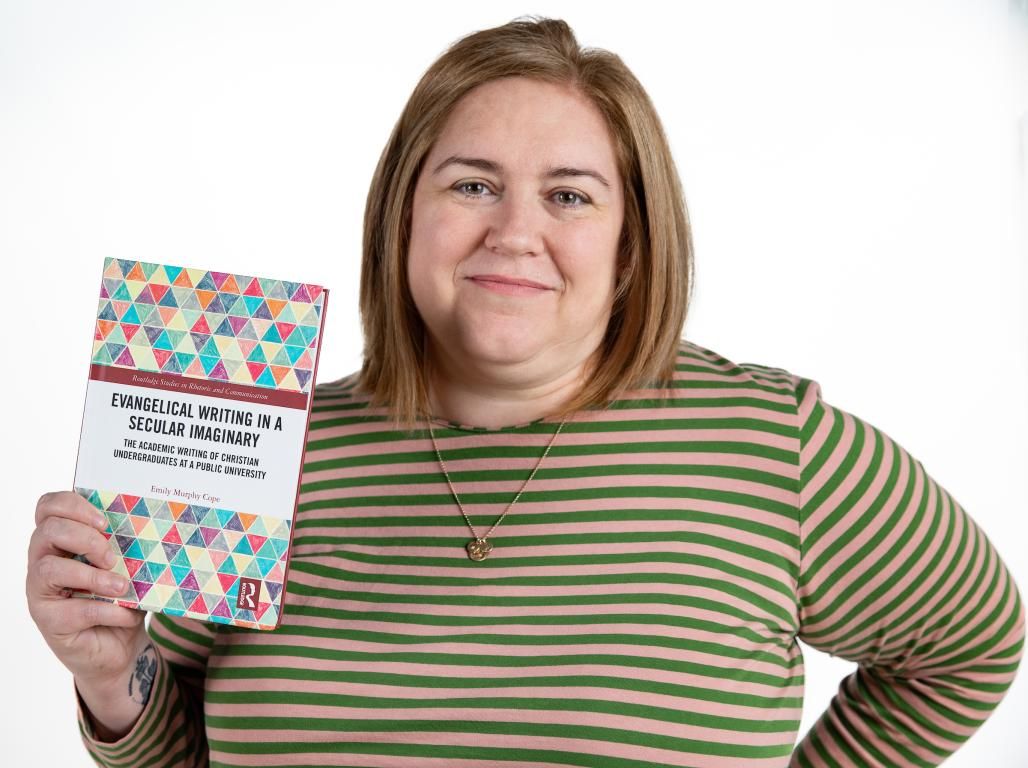Meet Dr. Barbara Hanbury, Associate Professor of Criminology and Criminal Justice

Whether it’s a current case or an unsolved crime case, Dr. Barbara Hanbury, Associate Professor of Criminology and Criminal Justice, provides her expertise to analyze and evaluate death investigation cases.
Dr. Hanbury’s Extensive Experience in Death Investigation
Dr. Hanbury, who received her Ph.D., M.A., and B.A. in Criminology/Criminal Justice from the University of Maryland, has been working at York College for almost 25 years. She currently teaches Juvenile Delinquency, Victimology, Death Investigation, and Punishment and Corrections. She specializes in death investigation and the recovery of human remains, and has worked as a Forensic Consultant since 2001, conducting and publishing research in the field. Currently, she’s conducting a national study on school shootings and how shootings have changed between 1970 and 2023. She is hopeful to finish her study this year.
Outside of York College, Dr. Hanbury has extensive experience in the criminal justice and criminology field. She has worked on Capitol Hill for the United States Sentencing Commission as a Research Analyst and for the Federal Bureau of Prisons as a Correctional Programs Specialist. In 2007, she spent six months on sabbatical from the College working in death investigation with the York County Coroner’s Office.
She has also worked on high-profile death investigations. In 2001, she was part of a forensic team headed by Professor James Starrs from George Washington University that exhumed and examined Albert DeSalvo, perhaps best known as the Boston Strangler.
“His body, after nearly 30 years, was exhumed in Peabody, Massachusetts, and was brought to York College for a second autopsy,” Dr. Hanbury explains. “We were hopeful to find evidence that might suggest who killed DeSalvo in prison in 1973, as well as collected evidence to determine if he really was the Boston Strangler after confessing that he was.”
Additionally, she worked on the death-in-custody case of Samuel Swan, who died in Lackawanna County Prison in 2001. The case was filmed for a documentary by the History Channel, and Dr. Hanbury was in the lab at the time of filming.
“Samuel Swan, who died in Lackawanna County Prison, was exhumed, and brought to York College for a second autopsy. The question addressed was whether Swan killed himself or died under suspicious circumstances,” she says. “The original autopsy and forensic reports were incomplete, and with all the organs in the neck removed during the first autopsy but not replaced, the findings were inconclusive.”
More recently, Dr. Hanbury portrayed herself as a forensic consultant in a film called Grand Jury in Las Cruces, New Mexico, which was based on a case that she and selected students worked on at York College. This was an extensive case review and involved researching, collecting, examining, and analyzing police and autopsy reports, crime scene photos, and forensic evidence to determine cause and manner of death.
Emphasizing Real-World Applications For Criminal Justice Students
In the classroom, Dr. Hanbury emphasizes the importance of real-world applications in her students’ education. She includes trips to local prisons and morgues so students can get a feel for how their future work environment functions before they graduate.
“Preparing students for their initiation into the criminology and criminal justice field is a critical component of teaching. I think it is extremely important that students apply what they learn in my classes to real-life experience,” she adds. “For example, for my Punishment and Corrections class, we visited and extensively toured York County Prison last week. In my Death Investigation class, we have visited the York County Morgue as well as the Medical Examiner’s Office in Baltimore City, Maryland.”
She also appreciates meeting former students in the field during these trips.
“During most of my field visits, I typically will see a student who graduated from YCP and had me as a professor. It is extremely rewarding interacting with many of my past students that are now successful in the criminal justice field,” she says.
Sensing her students had a strong interest in death investigation like her, she proposed and founded the Death Investigation course at York College. In the coming months, she will be solving cold cases and teaching a new course.
“I have been approved for a sabbatical during fall 2023 and spring 2024 in which I will be providing my expertise to assist law enforcement agencies in solving cold cases and unsolved crimes,” she says. “A small group of selected students will be assisting me with the analysis, and this will allow the students to have a hands-on experience. During my sabbatical, I will also be designing a class called Cold Cases that will be offered in fall 2024.”
Dr. Hanbury’s favorite part of her job is being able to communicate with her students, inside and outside of classes.
“There are many parts of my job that I love, but my favorite part is the interaction with my students. Having smaller class sizes (less than 30) allows for more student-professor interactions,” she explains. “I also enjoy acting as a mentor/adviser when assisting students with their professional and career development.




